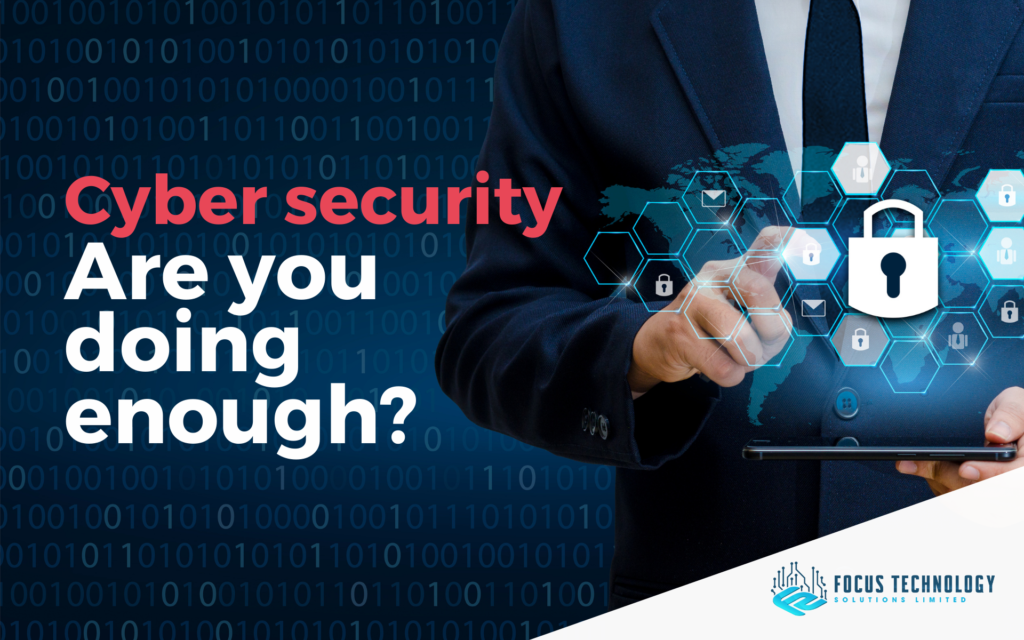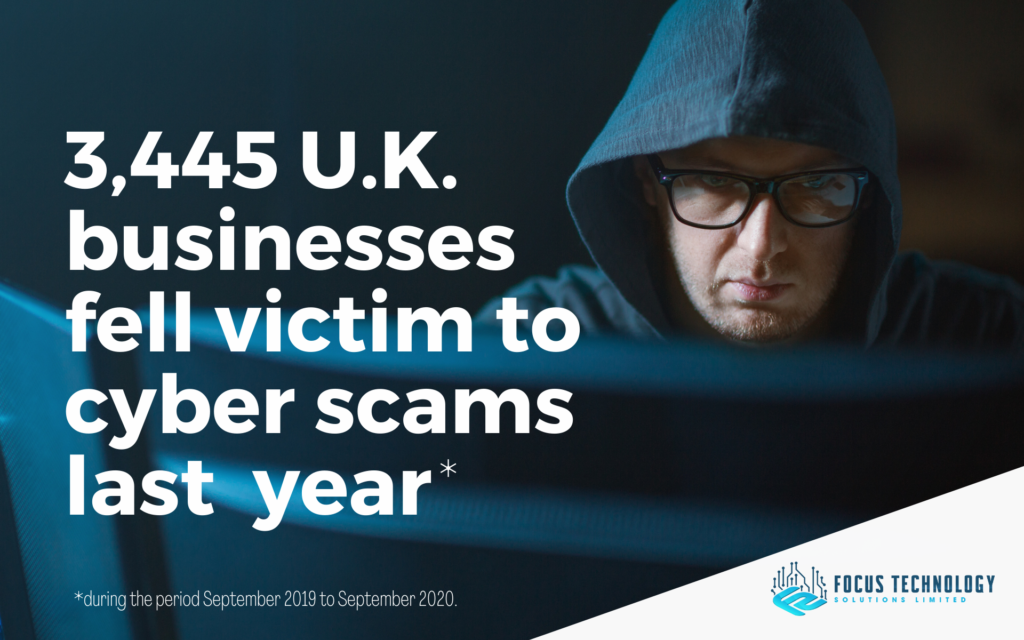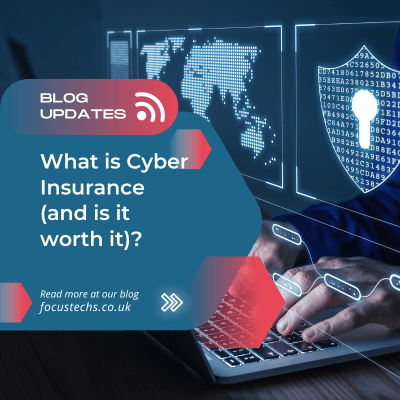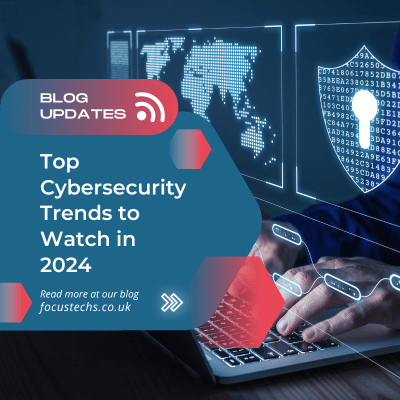
After COVID-19 was declared a pandemic by the World Health Organization on March 11, 2020, almost 88% of organisations worldwide, made it mandatory or encouraged their employees to work from home. In the next few months, the world became far more digitally connected than ever—and more vulnerable than ever and the cybercriminals were out in force exploiting the crisis.
Some of these changes were done quickly to return your client services, but what HOLES did this leave OPEN?
To date, your business has seen rapid changes. We have seen some of our clients adopting cloud-based and hybrid solutions to supplement or replace on-premises platforms. These decisions permanently change the way these organizations do business. This surge in online operations has also impacted remote work and increased the risk of cyberattacks.
We know running a successful accountancy firm is hard work, especially during a pandemic but when your staff were instructed to work from home, did you think about how remote working would impact your business for the long term?
The most common type of attack was hacking through email or social media, which accounted for 53% of attacks over the year, leading to a loss of £2.9 million. Scams caused by hacking of computer servers was revealed as the second most common type of attack on businesses over the 12 month period.

Common types of cyber threats
Malware – Malicious software such as computer viruses, spyware, Trojan horses, and keyloggers.
Ransomware – Malware that locks or encrypts data until a ransom is paid.
Phishing Attacks – The practice of obtaining sensitive information (e.g., passwords, credit card information) through a disguised email, phone call, or text message.
Social engineering – The psychological manipulation of individuals to obtain confidential information; often overlaps with phishing.
Advanced Persistent Threat – An attack in which an unauthorized user gains access to a system or network and remains there for an extended period without being detected.
Why you can’t ignore cyber security
The repercussions that businesses face if they don’t properly address cyber security are huge and can sometimes sink a business.
Business disruption
The first problem that you’ll run into is business disruption. An attack on your systems may paralyse your business or force you to close off parts of your client facing services to make sure cyber criminals can no longer access your data.
Take moment to think about – what would happen if we turned off your email or main line of business application right now for 48 hours?
Remedial costs and regulatory fines
Getting up and running again is only your first obstacle. If the incident was serious enough, you will need to contact affected clients as well as your data protection supervisory authority, which in the UK is the ICO (Information Commissioner’s Office).
Notifying customers alone can be an expensive and time-consuming endeavour. Getting new customers is hard, but losing them is harder.
You may have to set up helpdesks so that those affected can get in contact to learn more or offer complementary credit checks.
In addition to this, the ICO may well decide that the incident was a result of a GDPR (General Data Protection Regulation) violation, in which case you are liable to receive a hefty fine and face legal action.
Reputation damage
Finally, the incident might result in long-term reputational damage. It can be hard for organisations to retain customers’ trust – and that’s particularly true for small organisations – so you may experience significant client loss.
Ok, so we’ve talked about the threats and repercussions. But as the saying goes ‘prevention is better than cure’.
Let’s discuss ways in which you can minimalise your firm’s threats:
Secure your organization’s cloud
Ensuring your organisation’s cloud is secure is essential. Enforce least privileged access policies to sensitive data, this means only giving the minimum access to staff to enable them to do their job effectively. Evaluate your cloud framework and look for security vulnerabilities in it.
Implement Multi-Factor Authentication (MFA). Microsoft Office 365 have recently announced that they will be enforcing basic MFA to all their cloud services, there’s a reason for this move. Use strong encryption techniques, employ efficient anti-malware solutions. If implemented properly, all the above strategies will minimise the risk of cloud threats to your operations
Automate security at every stage
Cybersecurity automation includes continuous monitoring, auditing, alerting, and response. Use security solutions to help you automate security efficiently. Automation is an effective layer of defence against cyberattacks. By implementing security automation in an organization’s network minimises the risk of human error.
Evaluate your IT infrastructure on a regular basis
To ensure cyber resilience, it is important for companies to evaluate their entire IT infrastructure on a regular basis and look for hidden security bugs and loopholes. A thorough analysis of your IT framework, including devices, applications, networking tools, policies, workflows, and databases, will provide insights into security risks, points of weakness, and help you understand which assets require other actions, such as maintenance, upgrades, etc.
Deploy a unified log monitoring system
Log monitoring enables you to identify malicious actors in your system. Given the large amount of log data generated by various components of an IT system, it is impractical to review all these logs manually each day. Using a unified log monitoring system allows you to track your entire infrastructure using rules to automate the review of logs from different sources and highlight events that might represent problems or threats. A log monitoring solution will increase your opportunities to detect anomalies and mitigate cyber threats.
Stay updated on security trends
From a security perspective, it is vital to stay ahead of the current global threat landscape. Staying informed about the latest security threats helps you adapt to trends and implement effective defence strategies. It will also help educate users about the new types of malware, attacks, and scam techniques. Security alerts and advisories help you keep your organization’s network secure. A simple update or product patch can prevent a massive data breach. Attending cybersecurity events is also a great way to stay updated on the current cyber attack trends and learn how you can mitigate them.
TOP TIP:
Never think “It will never happen to my business, I’m too small” Cybercriminals don’t care how big of a company you are. Any data to them is valuable.
Assume that you are always a target and if you’ve not got the IT capacity, look for specialists who can help you plan a step-by-step strategy that protects, detects, and responds to any threats that may come your way.
If you’d like a discussion on your cybersecurity needs, get in touch.










